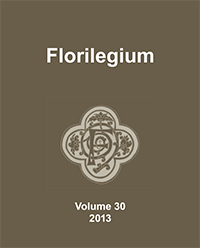Classical Exegesis – from Theagenes of Rhegium to Bernard Silvestris
Résumé
This article explores the methods that ancient philosophers and historians devised for the interpretation of Greek myths and examines their development in later ages. With few exceptions, poets were regarded as the authors of myths, with the result that much ancient myth exegesis was directed to authorial intention. Claims that the poets were liars were met with the defence that they wrote allegorically. Interpretation tended to be closely related to the doctrines of the philosophical schools; indeed, it was the authority of the schools that was responsible for spreading ancient methods of interpreting pagan texts to Christian interpretations of the Bible. The article examines the mental operations involved in different hermeneutic methods, with special attention given to differentiating between allegory and symbolism.



